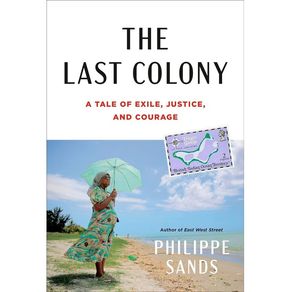In 1973, on the Chagos Islands off the coast of Africa, Liseby Elyse--twenty years old, newly married and four months pregnant--was, rounded up, along with the entire population of Chagos, and ordered to pack her belongings and leave her beloved homeland by ship or slowly starve; the British had cut off all food supplies.
Some two thousand people who had lived on the islands of Chagos for generations, many the direct descendants of enslaved people brought there from Mozambique and Madagascar in the 18th century by the French and British, were deported overnight from their island paradise as the result of a secret decision by the British government to provide the United States with land to construct a military base in the Indian Ocean.
For four decades the government of Mauritius fought for the return of Chagos. Three decades into the battle, Philippe Sands became the lead lawyer in the case, designing its legal strategy and assembling a team of lawyers from Mauritius, Belgium, India, Ukraine, and the U.S.
When the case finally reached the World Court in the Hague, Sands chose as the star witness the diminutive Liseby Elyse, now sixty-five years old, and instructed her to appear before the court, speaking in Kreol, to tell the fourteen international judges her story of forced exile. The fate of Chagos rested on her testimony.
The judges faced a landmark decision: Would they rule that Britain illegally detached Chagos from Mauritius? Would Liseby Elyse sway the judges and open the door, allowing her and her fellow Chagossians to return home--or would they remain exiled forever?
Philippe Sands writes of his own journey into international law and that of the World Court in the Hague, and of the extraordinary decades-long quest of Liseby Elyse, and the people of Chagos, in their fight for justice and a free and fair return to the idyllic land of their birth.

